As a part of our AFAM (African American Studies) 101 course, we were asked to share our thoughts on what we did not know prior to this course. Our group featuring Jaylen A., Skyler D., Elijah T., Aldrin II V., & Gabriel J., have developed 5 podcast episodes in this series where we discuss our individual thoughts about topics we have learned in AFAM 101. Nonetheless, we realized a theme in all of our episodes of this mini series. That theme is centered around implications of events from the past and the present and how they have shaped the understanding of our individual identities. We understand that identity has many meanings so we speak from our personal experiences as we present historical evidence, share current events, dissect ideologies we’ve been taught, share our lived experiences and express personal aspirations.
“I [felt] that I’ve had to convert myself, change myself, in order to fit into different societies”
-Joanne Nchimbi TEDx speaker from the American School of Brasília
Below you can see how our series, “We didn’t know how our different identities and upbringings have impacted our outlook of the U.S. within the scope of our individual experiences” is organized. We hope you gain some insight into our lived experiences that we have been able to analyze with the knowledge obtained in AFAM 101.
- Introduction to the Podcast Series
- Episode #1: Jaylen A. and what he did not know about the forced anglicization of enslaved Africans to assimilate them into colonial society.
- Episode #2: Skyler D. and what he did not know about how the Black community utilizes Double Consciousness as a defense tactic and as a response to the feeling of otherness in the United States.
- Episode #3: Elijah T. and what he did not know about the mass incarceration of Black people and the provisions of the 13th amendment and how it is a reformed version of slavery in the United States.
- Episode #4: Aldrin II V. and what he did not know about how the American Dream is not attainable by Black people due to intrinsic oppressions that are remnants of slavery.
- Episode #5: Gabriel J. and what he did not know about redlining and how it ensured the separation of Black and white people across the country, and that the effects are still prevalent to this day.
- Closing Remarks
An Introduction by Aldrin II V.
Episode #1: Before AFAM 101 I didn’t know about the effort that white colonists put into erasing the identities of Black people throughout the history of America, and how identity is still an issue for African Americans today.
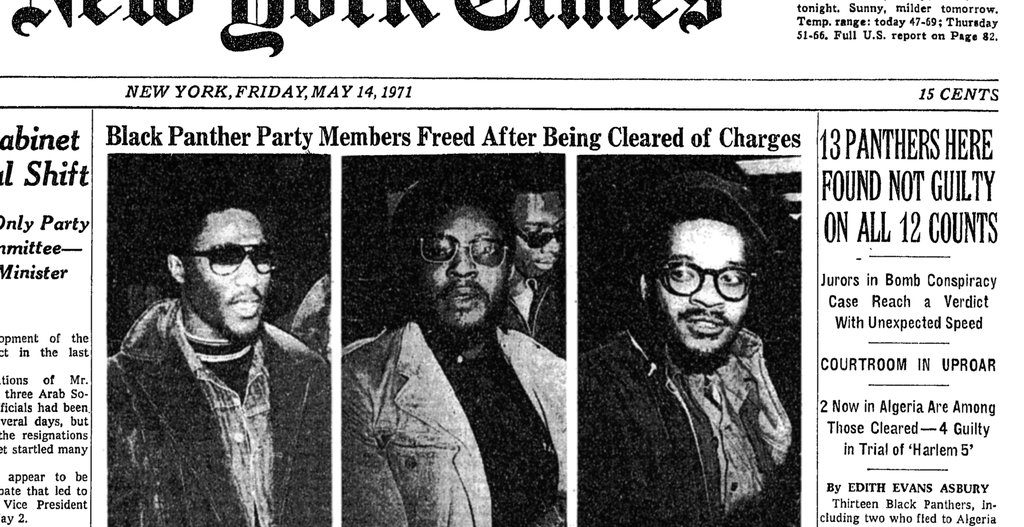
A podcast by: Jaylen A.
Episode #2: Before AFAM 101 I didn’t Know how W.E.B. DuBois’ concept of double consciousness affects and sheds lights on the existence of a sense of otherness among the identities of Black and non-Black people in American society.
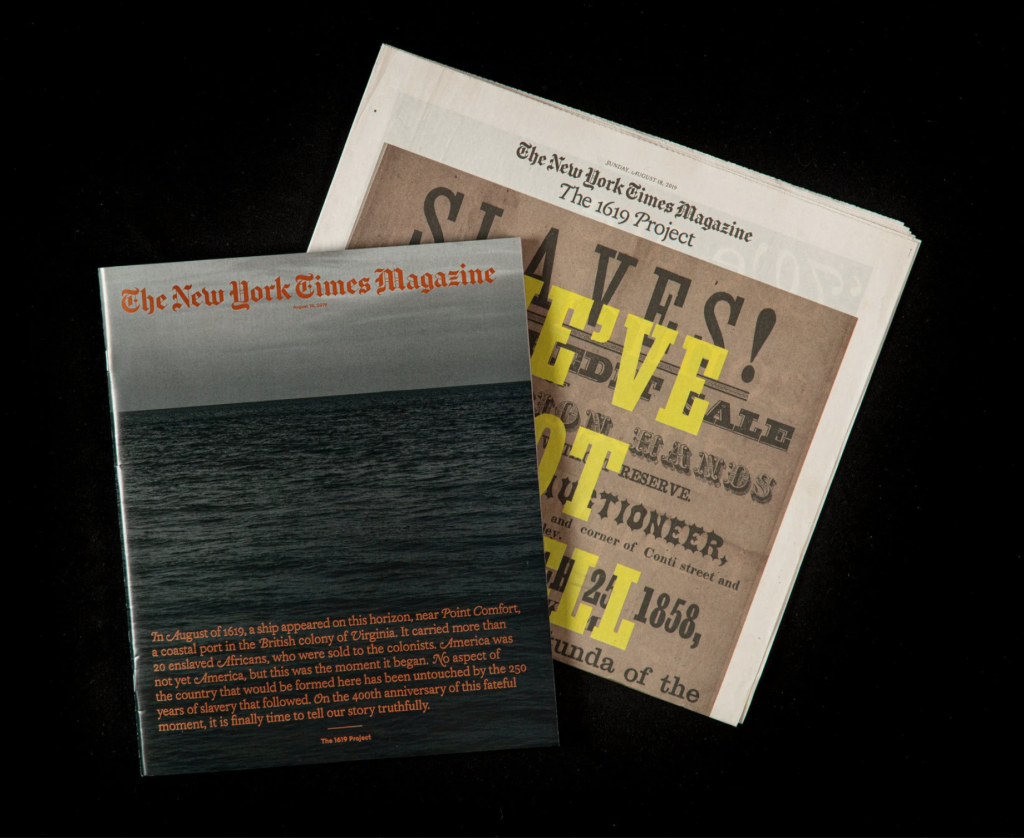
A podcast by: Skyler D.
Episode #3: Before AFAM 101 I didn’t Know how slavery has transformed itself into incarceration and how it has become closely associated with the identity of Black men in the U.S.
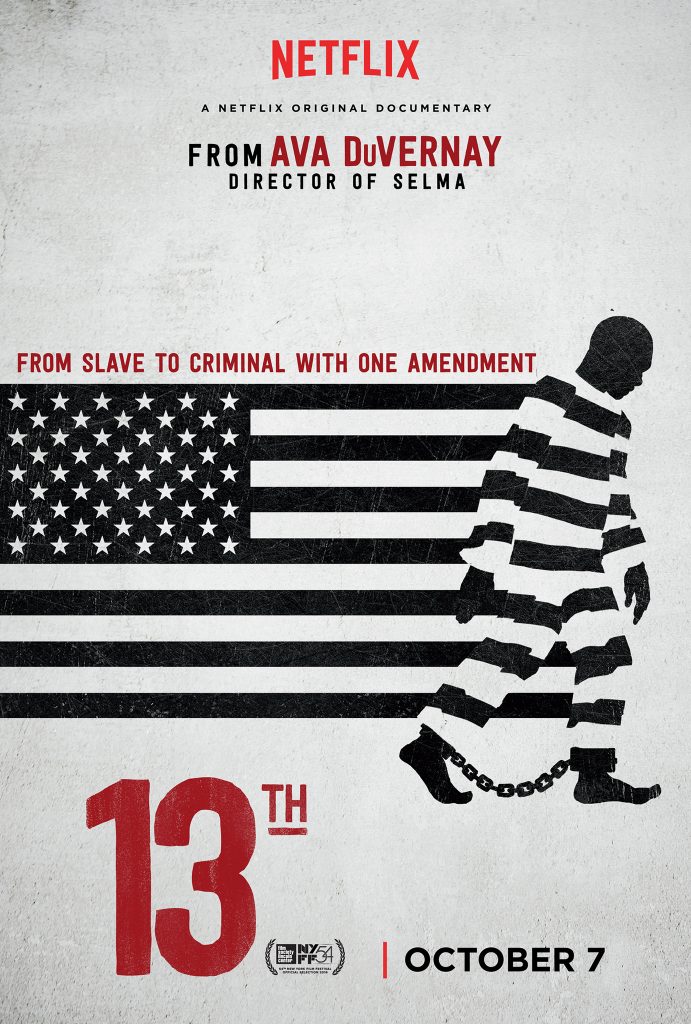
A podcast by: Elijah T.
Episode #4: Before AFAM 101 I didn’t Know how rhetoric like “pull yourself up by the bootstraps” is not an applicable standard to hold against Black people due to intrinsic traits of American society that arose from slavery
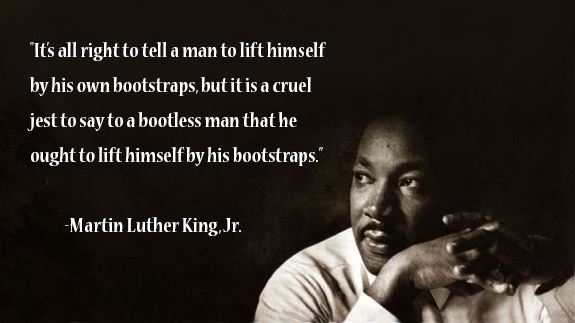
In a recording 11 months before his assassination Rev. Dr. Martin Luther King Jr. stated these words in an interview about the ‘new phase’ of struggles regarding the Civil Rights Movement. NBC -
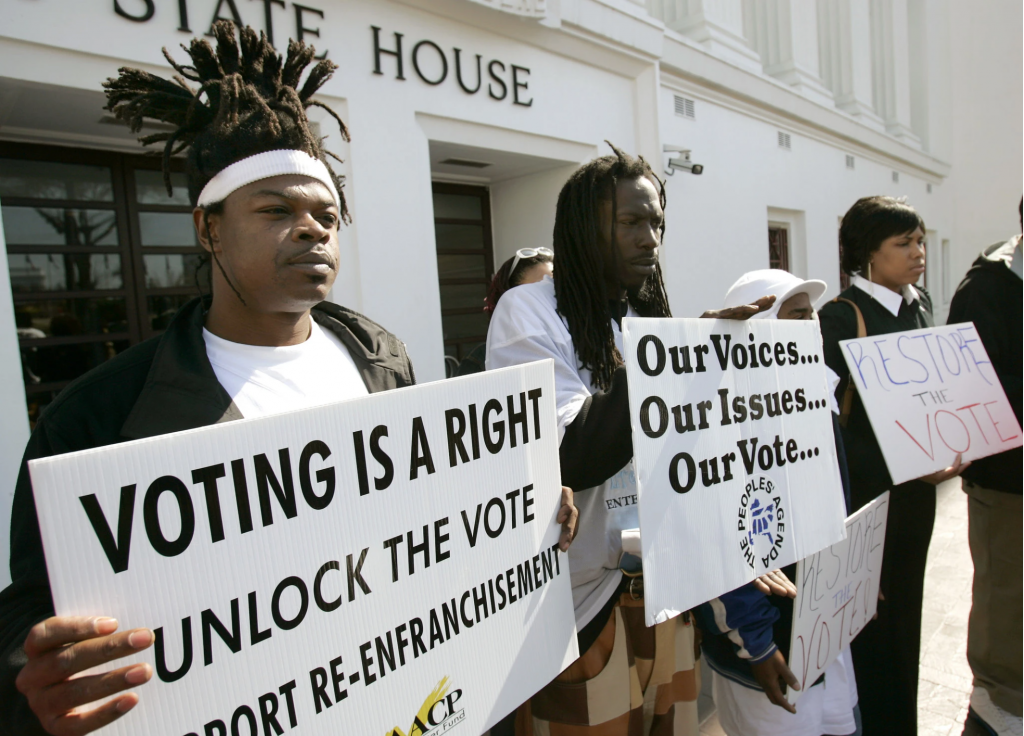
Photo of protestors advocating for the Alabama to reinstate of voting rights to convicted felons. In 2014, 7.2% of Alabama’s population lost the right to vote due to a felony conviction, of that fraction of the population 15% were Black people. Info and photo were obtained from the New York Times.
A podcast by: Aldrin II V.
Recommended Reading
- Leary, J. D., & Robinson, R. (2005). Post traumatic slave syndrome: America’s legacy of enduring injury and healing. Milwaukie, OR: Uptone Press.
- Menakem, R. (2017). My grandmother’s hands: Racialized trauma and the pathway to mending our hearts and bodies. Las Vegas, NV: Central Recovery Press.
- Watkins-Hayes, C. (2009). Race-Ing the Bootstrap Climb: Black and Latino Bureaucrats in Post-Reform Welfare Offices. Social Problems, 56(2), 285-310. doi:10.1525/sp.2009.56.2.285
Episode #5: Before AFAM 101 I didn’t Know that being a Black property owner can affect how you and your properties are valued and that it’s prevalent in my home community where gentrification is occurring
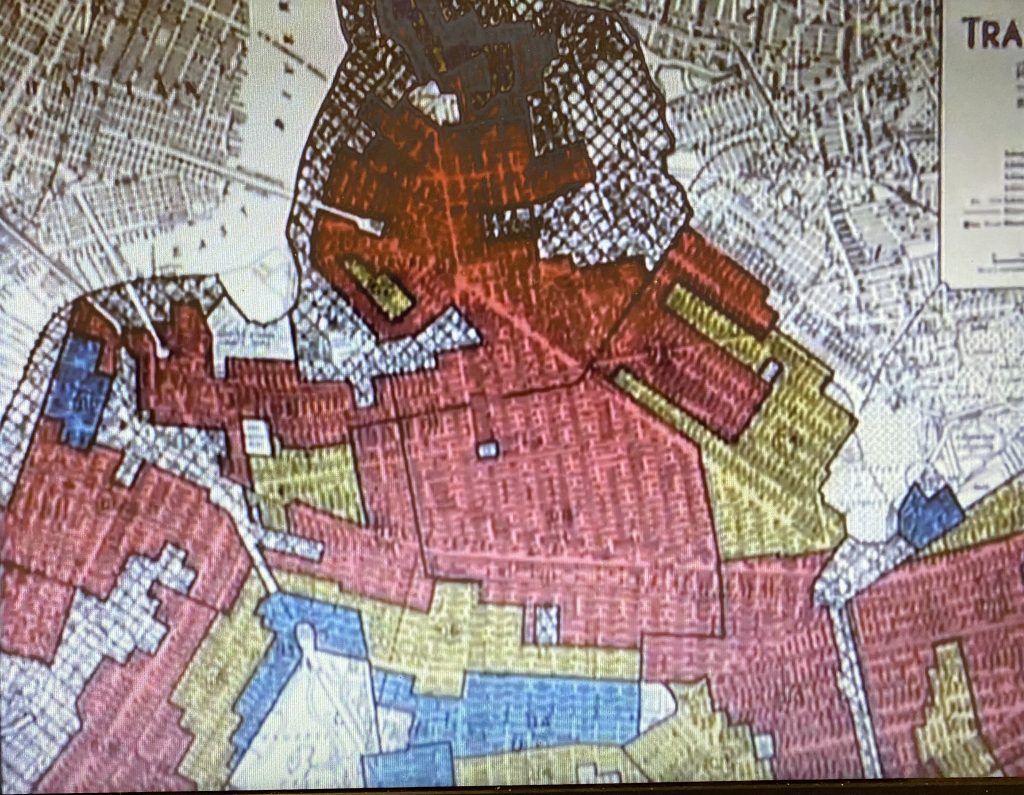
A podcast by: Gabriel J.
Closing Remarks by Skyler D.
